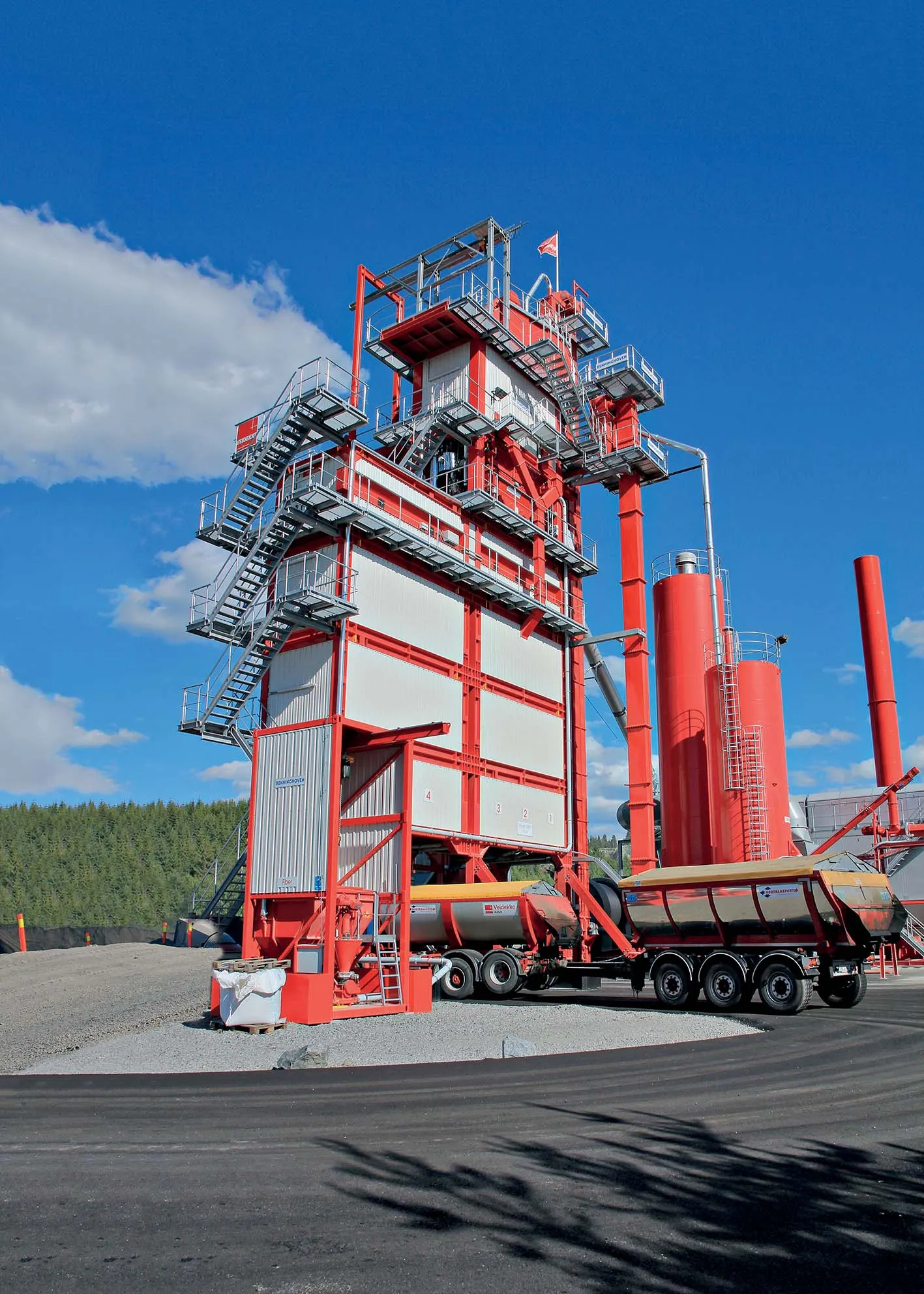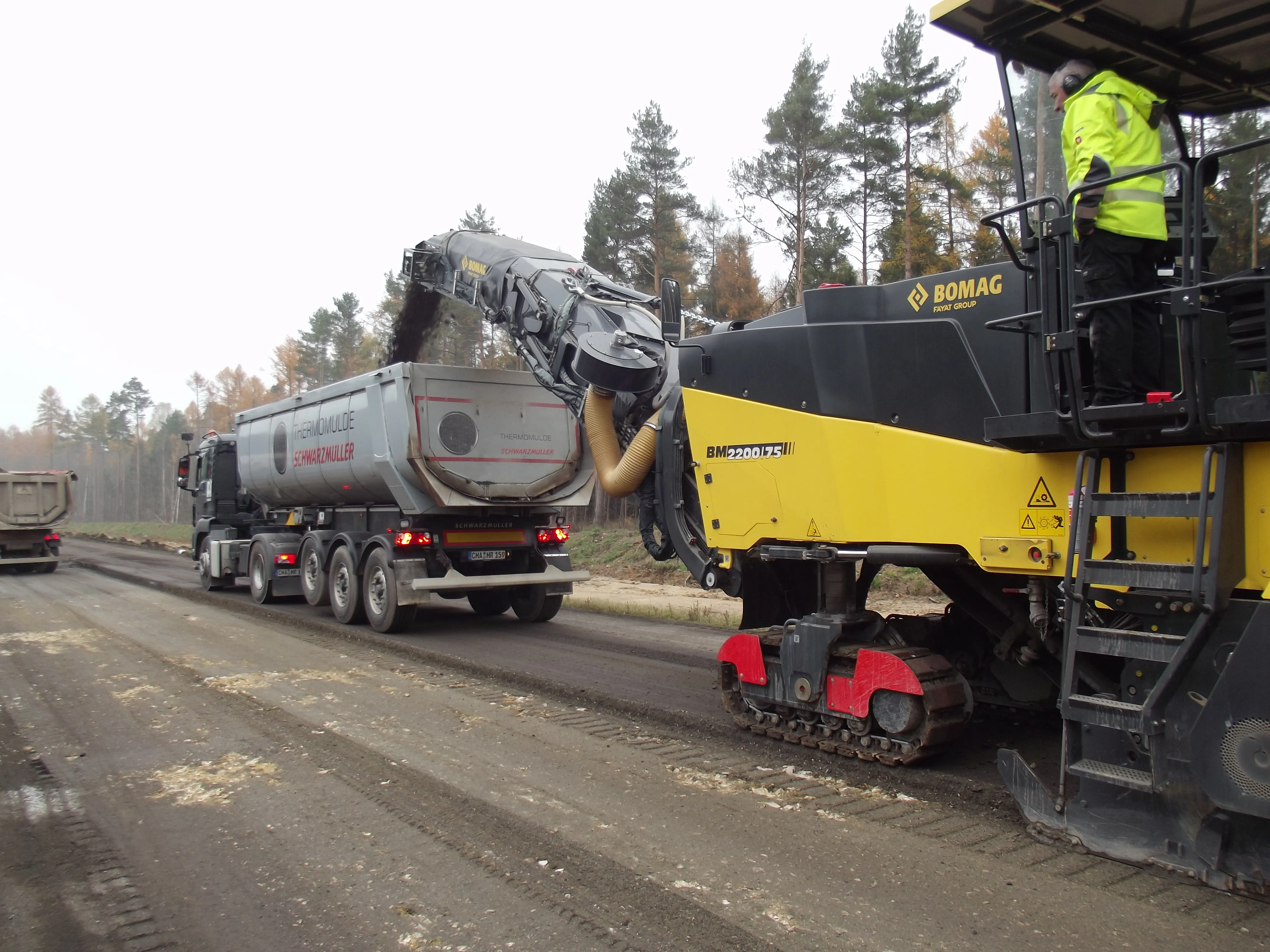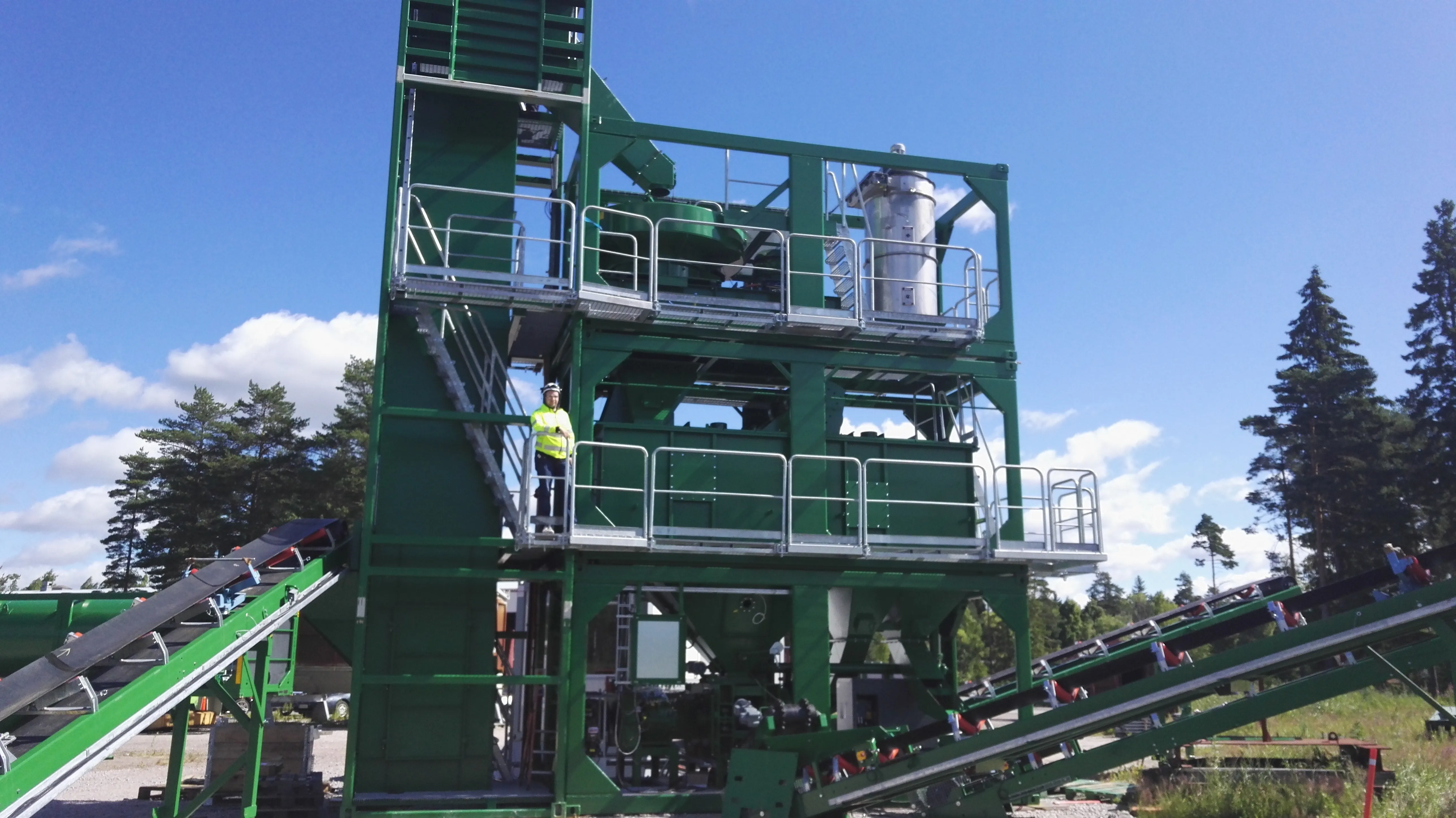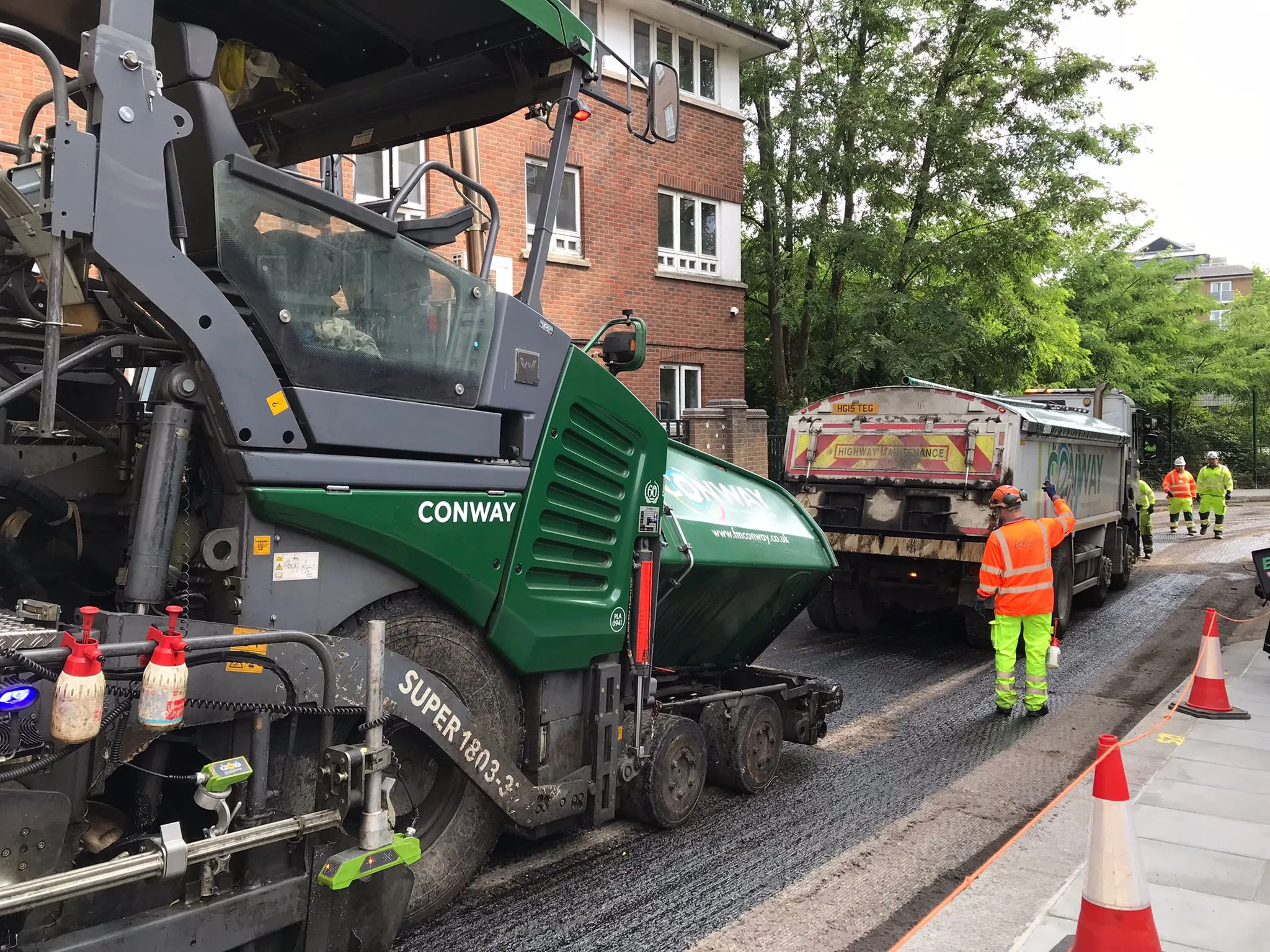
The work was done on Elmfield Way in the City of Westminster, part of the greater London urban area. The contractor laid a road surface containing 92% recycled materials - the highest percentage ever used on a UK road.
As Westminster City Council’s Highways partner, FM Conway delivered an upgrade of the road and footways, implementing multiple low-carbon techniques. It achieved a total embodied and operational carbon saving of 78% – equal to around 100 tonnes of CO₂ equivalent.
The residual unavoidable carbon emissions were then offset using high-quality Verified Carbon Standard (VCS) units. These are administered and certified by Verra, the world’s largest carbon registry, to make it a one-of-a-kind carbon neutral scheme, says Conway.
Around 280 tonnes of warm-mix asphalt was laid as a single layer, covering 1,600m² of carriageway. The proprietary mix, designed, manufactured and laid by FM Conway, was the combination of three specifications of the contractor’s 14mm SureLayer E product with the addition of extra recycled aggregate.
Surface course: 92% RAP
The finished product provided a surface course containing 92% recycled materials. This delivered other benefits in addition to carbon reduction, such as faster installation and less disruption to the neighbourhood. The material’s use of a polymer modified bitumen, specially designed for the project, also meant increased durability and resilience, extending its life for years to come, said Conway.
To achieve the substantial carbon savings, the asphalt material was manufactured at lower temperatures and laid in a thinner layer. This allowed for around 30% fewer tonnes manufactured, transported and laid – saving carbon throughout the life cycle.
The use of recycled content meant the use of less virgin bitumen and less quarried stone, preserving the natural environment and reducing the carbon impact from haulage of these materials. In addition, the road planings were transported back to the same plant where the asphalt was made, optimising the use of large transport vehicle logistics and minimising empty journeys.
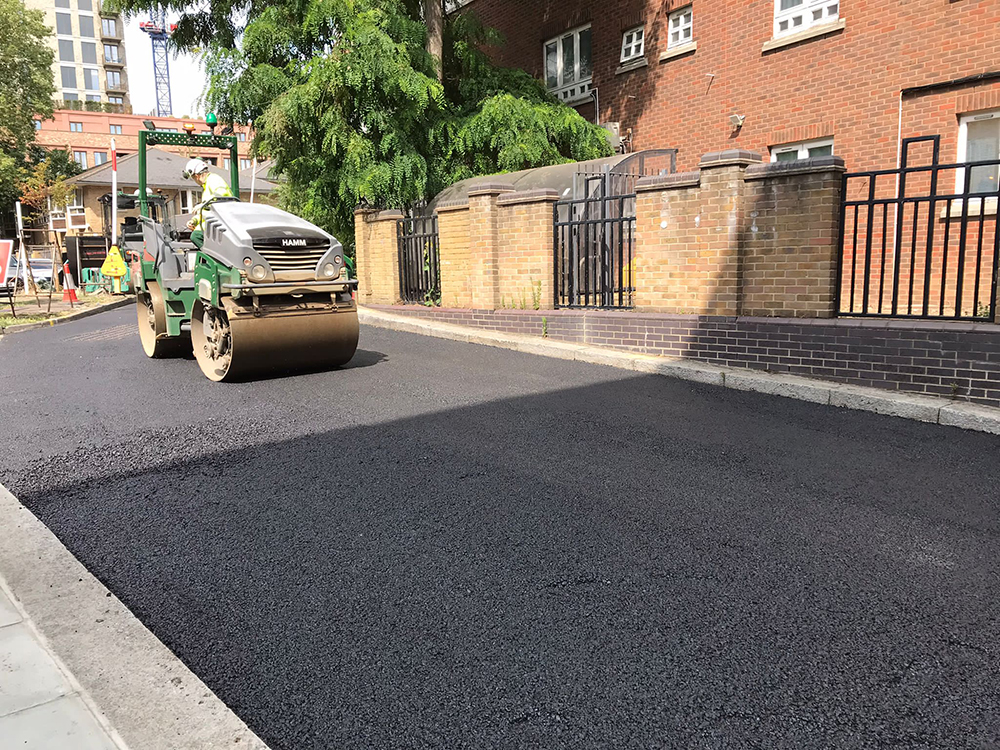
Alongside the new carriageway, the scheme also involved the enhancement of the footway between the Woodfield Medical Centre and Harrow Road, as well as the installation of 11 LED lamp columns, 200m of cabling and a full drainage review and clean.
Additional carbon savings were made in the footway construction, through the implementation of FM Conway’s low-carbon model. This incorporated closed loop recycling of excavated materials, as well as the use of lower thickness paving materials and lower-carbon cement alternatives.
The full scope of works was carried out using no fossil fuels on site. This was achieved through the use of hydrotreated vegetable oil (HVO) in the resurfacing element of the scheme, plus the use of electric mini-excavators, disc cutters and compaction plates. Also employed was a solar-powered welfare unit which used HVO as a backup in the footways element.
After the embodied and operational carbon savings were achieved, the residual unavoidable emissions were offset using high-quality carbon removal and renewable power projects. The business has also supported tree planting in the UK, through the purchase of Pending Issuance Units administered by the Woodland Carbon Code, marking FM Conway’s investment in future UK-based carbon removals.
The completed project now joins a series of low-carbon trials delivered throughout Westminster as part of the council’s and FM Conway’s shared net-zero ambitions. For this the partnership is using these new specifications to provide significant carbon savings compared to traditional materials and methods.
Pushing RAP boundaries
FM Conway and Westminster City Council have a longstanding history in pioneering the use of recycled content. A trial to lay an 80% recycled content surface in 2019 was followed in 2021 by a warm-mix surface course containing 85% recycled content on another road.
“This one-of-a-kind scheme illustrates how it is possible to stack together the best low-carbon products, methods and techniques that are available today, to deliver massive carbon reductions,” said Matt Tallon, sustainability director at FM Conway Sustainability Director.
“It is only once these embodied and operational carbon savings are made, should the residual carbon be offset, which in this case was done with high quality, verified ‘VCS’ carbon removal and renewable projects, as well as the planting of trees in the UK.”
The project pushed the boundaries for using recycled asphalt in carriageway works, noted Phil Robson, head of highway operations at Westminster City Council.
“It is a really interesting time to be working in highways with partners and adapting services to achieve climate-resilience and low-to-zero carbon emissions. The transition requires the use of offsets at this time but we expect to see lower reliance on them over time,” said Robson.



